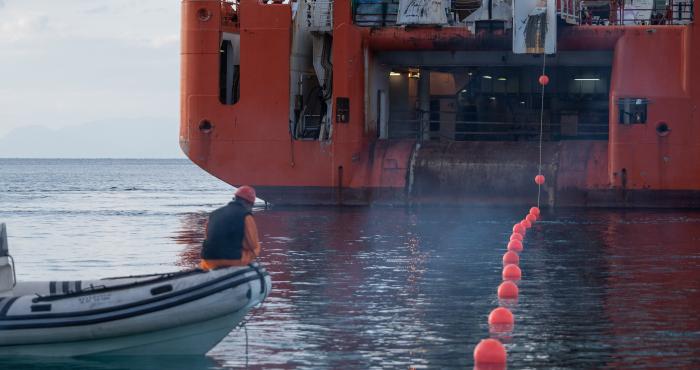The Great Sea Interconnector (GSI), connecting the electricity grids of Greece, Cyprus and Israel is now being handled on a diplomatic level as it has become a matter of foreign policy, Greece’s Independent Power Transmission Operator (Admie) has said.
Speaking at a conference earlier this week, Admie’s chairman and CEO Manos Manousakis said the Greek government and Admie had seen the geopolitical risk from the onset, however efforts were ongoing to keep the project alive.
Manousakis said Israel fully supported the project as it was not connected to a grid and faced challenges regarding adequate electricity supply.
So far, 160km of cable have been built and seabed investigations in the waters of Greece and Cyprus have been concluded, he said.
Manousakis also said it was important for Greece to secure the successful integration of the Dodecanese and the northeastern Aegean to the mainland system for reasons of national sovereignty and financial viability.
The GSI, he said, held great national importance for obvious economic and geopolitical benefits for all countries involved.
Cyprus’ connection with Greece would enhance the feeling of “belonging” for the last non-connected EU member state, Manousakis pointed out.
It would also benefit the single electricity market, upgrade social wellbeing and positively impact Cyprus’ consumers, he added.
Furthermore, he said the connection of Crete to Attica was in the testing phase and in the summer was expected to operate.






Click here to change your cookie preferences